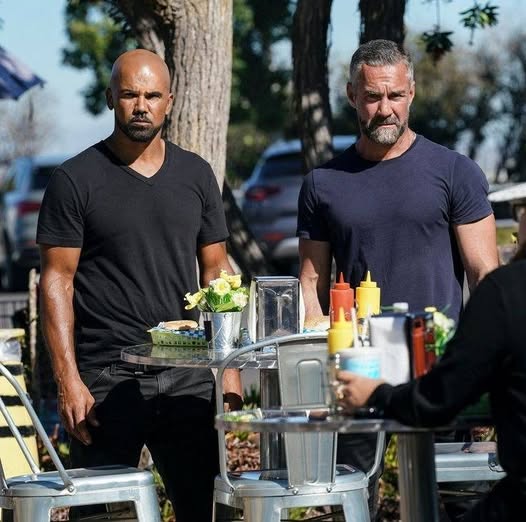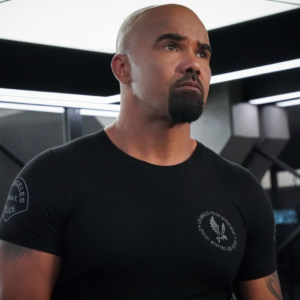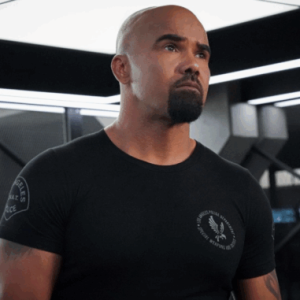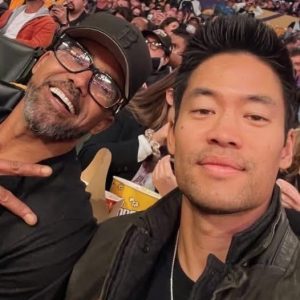The recent announcement from CBS regarding the cancellation of the police procedural drama “S.W.A.T.” has sent ripples of frustration and disbelief through its dedicated fanbase and the entertainment industry alike. This decision marks the second time the show has faced the axe, a perplexing move given its consistent strong ratings and a passionate global audience. At the heart of the outcry is Shemar Moore, who not only embodies the show’s lead, Sergeant Daniel “Hondo” Harrelson, but also serves as an executive producer, offering a unique, informed perspective on the abrupt end of a series that has consistently delivered. Moore’s unfiltered reaction, asserting that the cancellation is less about performance and more about “money, optics, and politics,” unveils a complex narrative about the evolving landscape of television production and network strategy.
“S.W.A.T.” has experienced a true rollercoaster ride through its broadcast history. In an unprecedented turn of events, the series was initially canceled in 2023 after its sixth season. This decision was met with immediate and overwhelming backlash from its loyal viewership, who flooded social media with pleas and campaigns to save the show. The sheer volume and intensity of fan protest proved potent, prompting CBS to reverse its decision, renewing “S.W.A.T.” for a final, albeit truncated, 13-episode seventh season. While this reprieve brought a collective sigh of relief, it came with the implicit understanding that the network was looking to conclude the series. Yet, hopes lingered that exceptional performance in its final run might once again sway the network, perhaps securing a more fitting conclusion or even another miraculous save. Unfortunately, these hopes have been dashed, leading to the current, seemingly final, cancellation.
Shemar Moore’s public response was not merely an expression of personal disappointment but a powerful critique of the underlying systemic issues at play. In a widely circulated video, Moore passionately articulated his frustration: “It’s not about performance. It’s about money. It’s about optics. It’s about politics. This is not okay.” His words resonated deeply, not just with fans but with many within the industry who recognize the often-opaque forces influencing network decisions. Moore underscored the immense dedication and tireless effort poured into the show by every single person involved, from the writers crafting compelling narratives to the camera crew capturing the intense action sequences. He highlighted how such a decision, especially after the show had successfully navigated a previous cancellation and continued to perform admirably, profoundly undermines years of collective dedication to a series that has not only entertained but also broken barriers and achieved significant global reach. This sentiment of being undervalued despite delivering a quality product for a committed audience speaks to a broader disillusionment among creatives in an increasingly corporatized media environment.

The paradox of “S.W.A.T.’s” cancellation is evident when examining its performance metrics. The show was far from struggling; it consistently pulled in strong viewership numbers during its Friday night slot, a challenging period for network television, and demonstrated robust performance on streaming platforms. This raises a fundamental question: Why would a network cancel a show that is demonstrably working and engaging its audience? Moore’s pointed reference to “optics and politics” offers a crucial lens through which to understand this disconnect. “S.W.A.T.” stands out among network dramas for several key reasons. It is one of the few high-profile series led by a Black actor, and its storylines consistently tackle sensitive, real-life social justice issues. The show has grappled with police reform, systemic racism, community relations, and mental health within law enforcement, presenting nuanced and often challenging portrayals of these complex themes. Moore’s suggestion implies that these bold narrative choices and the show’s diverse representation might not align with what the network currently wishes to project or promote, leading to uncomfortable questions about how Hollywood prioritizes content that challenges societal norms versus content perceived as safer or more universally palatable.
Beyond the realm of “optics,” financial considerations inevitably play a significant role. Industry insiders often suggest that “S.W.A.T.” became a considerable financial burden for CBS due to rising production costs. Filming in Los Angeles, combined with increasing cast salaries commensurate with the show’s success and longevity, contributed to a substantial per-episode expense. In an era where traditional networks are under immense pressure to trim budgets, procedurals with high-octane action sequences and extensive location shooting frequently find themselves on the chopping block, irrespective of their popularity. CBS, like many legacy broadcasters, is navigating a dramatic shift in the media landscape, pivoting strategically toward content that is cheaper to produce, such as reality shows, and focusing heavily on building out their streaming libraries. In this new strategic framework, a high-cost, socially relevant procedural like “S.W.A.T.” might simply no longer fit the envisioned business model, even if it continues to attract a loyal audience.
What “S.W.A.T.” represents extends far beyond its entertainment value as a television show. Unlike many crime dramas that primarily focus on the mechanics of law enforcement, “S.W.A.T.” leaned heavily into cultural relevance. It consistently reflected current social issues, often humanizing law enforcement officers in complex and multi-faceted ways, exploring their struggles, biases, and commitment to justice in a challenging environment. For a significant portion of its fanbase, particularly people of color, “S.W.A.T.” offered a rare and nuanced portrayal of leadership and integrity within a system frequently depicted as broken. Shemar Moore’s portrayal of Hondo Harrelson was both powerful and vulnerable, presenting a character who was an exemplary leader, a dedicated father figure, and a man deeply committed to bridging the divide between law enforcement and the communities it serves. This kind of representation is not just about casting; it’s about storytelling that resonates and provides positive, complex role models.

Despite the current setback, Shemar Moore’s fighting spirit remains undimmed. While no formal action has been announced, his message to fans ended on a note of defiant hope and determination. He clearly desires for the show to find new life, whether it be through a renewed commitment from CBS or, more likely, a rescue by a different platform. “We’re not dead yet,” he declared, urging fans to amplify their voices once more. The prospect of “S.W.A.T.” being picked up by a streaming service like Netflix, Prime Video, or even Paramount+ is not far-fetched. With a built-in, highly engaged fanbase and a proven track record of success, the series presents a compelling candidate for revival, potentially finding a new home that better aligns with its production costs and thematic depth.
The saga of “S.W.A.T.’s” cancellation offers critical lessons about the contemporary television landscape. Foremost among them is the stark reality that traditional ratings, once the sole arbiter of a show’s fate, are no longer the only, or even primary, determinant. Today, decisions are increasingly driven by a complex interplay of factors: cost-per-episode, global distribution rights, syndication potential, and overall brand alignment with a network’s evolving portfolio. Yet, the show’s initial resurrection serves as a powerful testament to the enduring influence of fan power. While it remains to be seen if a second collective effort can save the series, the unwavering dedication of Shemar Moore and the “S.W.A.T.” fanbase should not be underestimated.
Ultimately, this cancellation is not merely about one popular television show. It is a microcosm of larger, disconcerting trends within the entertainment industry: the perplexing phenomenon of diverse and critically relevant shows being axed despite solid performance, the growing tendency for networks to prioritize “safe” and cost-effective content over bold and socially impactful narratives, and the accelerating shift from traditional network television models to the dynamic, often less transparent, world of streaming and syndication. “S.W.A.T.” may be down, but the impact it has already made — through its compelling storytelling, its commitment to diversity, and its courageous exploration of pertinent social issues — is indelible. Shemar Moore’s raw and honest response encapsulates more than just the disappointment of a lost job; it is a profound commentary on respect, representation, and the inherent value of storytelling that extends far beyond mere dollar signs. The future of “S.W.A.T.” remains uncertain, but if the series has taught its audience anything, it is to never underestimate the underdog or the power of a unified voice.





